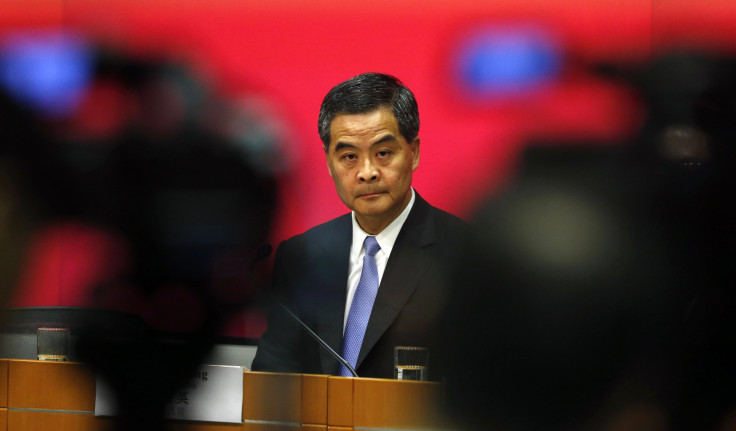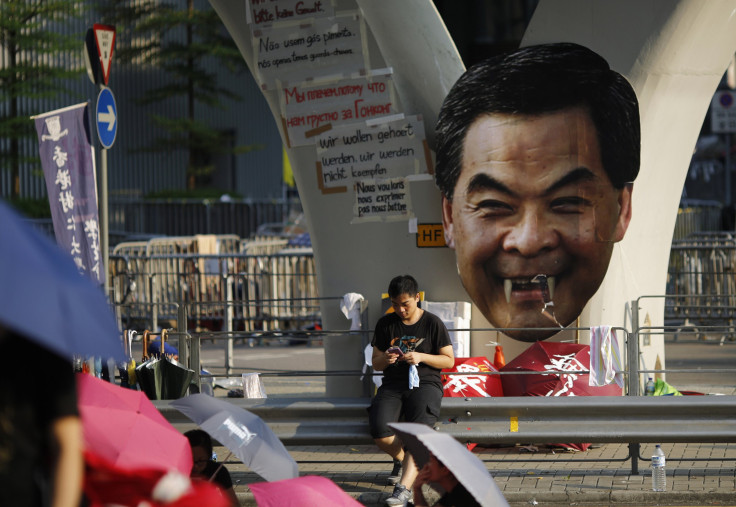Who Is CY Leung? Hong Kong's Chief Executive Won't Resign Amid Occupy Central Protests

Leung Chun-ying, the chief executive of Hong Kong, was thrust into the international spotlight this week after years of realtively quiet government service when protesters called for his resignation amid massive pro-democracy demonstrations. CY Leung, as he’s known, has long been a polarizing figure in Hong Kong. Supporters see him as a working class hero because of his modest background, while opponents have portrayed him as an extension of Beijing’s powerful political hand. Much of the tension has to do with how Leung got his job.
Leung, 60, is the son of a police officer. He studied at King’s College, Hong Kong Polytechnic and Bristol Polytechnic. For most of the 1980’s, Leung’s policymaking was limited to land reform and real estate reform in Hong Kong and mainland China, where he often served as an advisor to local committees.
By the end of the decade, he became secretary general of the committee that helped shape the Hong Kong Basic Laws, the pseudo-constitution that took effect when the United Kingdom handed over Hong Kong to Beijing in 1997. He was known as a middleman between the British and Chinese, who often didn’t see eye to eye on democratic issues. Leung often brokered compromises between the two. He continued to serve on handover preparations up until the handover.
Hong Kong’s chief executive is voted in exclusively by an electoral college made up of largely pro-Beijing lawmakers, the very system protesters want replaced with universal suffrage. Leung was made chief executive in 2012 with 689 out of 1,200 votes in Hong Kong’s election committee. That’s just over the 50 percent needed to win the election. Critics started called Leung “689” for his narrow victory margin. Many said he was elected only because of his loyalties to Beijing.
The election campaign eroded some of the support Leung had as a policymaker as he faced constant criticism that he was a secret member of China’s ruling communist party. Two years after being elected, Leung’s approval rating just prior to the student protests sat at just 21 percent. Around 61 percent of survey-takers said they had no confidence in Leung.
Despite his unpopularity, Leung said this week he would not step down. Experts speculate Beijing may order Leung's resignation as a concession to end the protests.

© Copyright IBTimes 2025. All rights reserved.






















